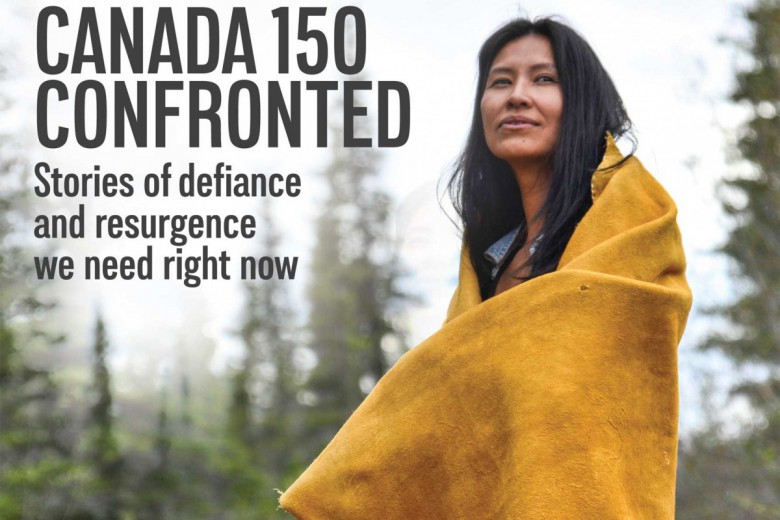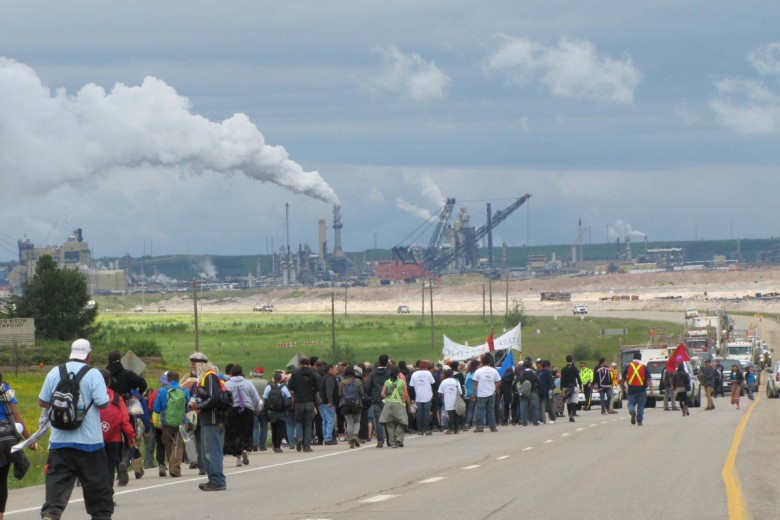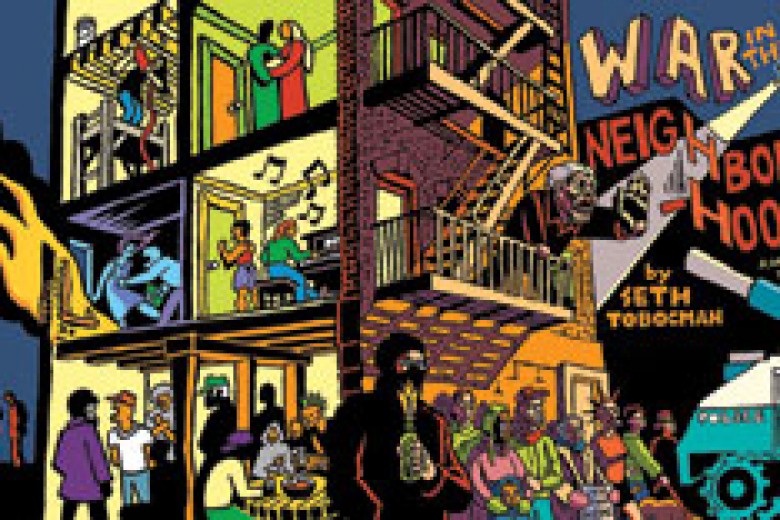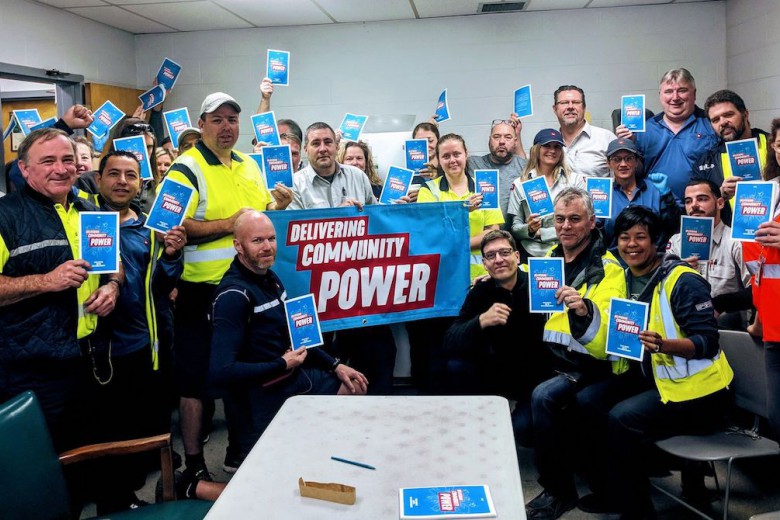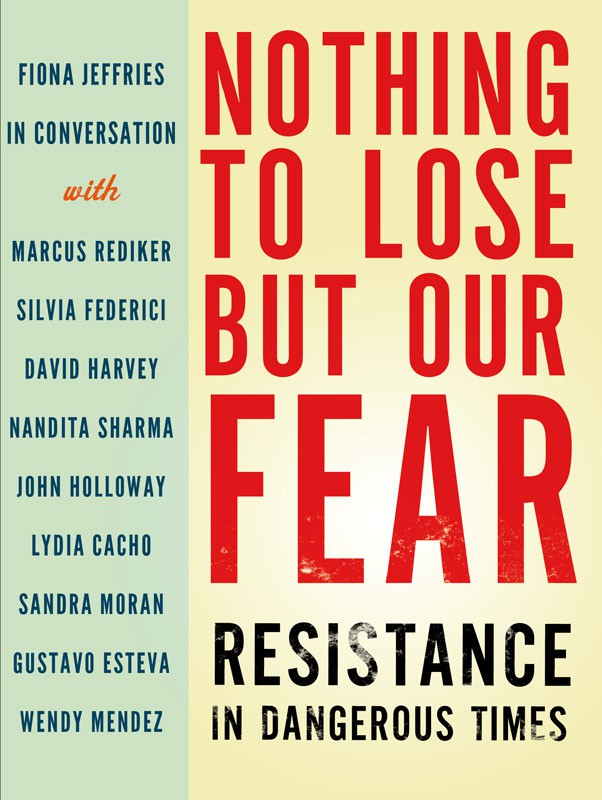
Nothing to Lose But Our Fear: Resistance in Dangerous Times
By Fiona Jeffries
Between the Lines, 2015
Fiona Jeffries’ compilation of interviews, Nothing to Lose But Our Fear: Resistance in Dangerous Times, explores how to understand and organize against oppression in an environment of surveillance, paranoia, and pervasive public fear. “Fear is deployed as a technology of political discipline,” says Jeffries. Fear “distracts people from the systemic source of their insecurities while further empowering fearmongers in politics, the commercial media, and the booming global security industry.” Against a backdrop of systemic, global insecurity, she asks: “how can we think critically and act productively in a world awash in fear?”
The book is structured in three parts: historicizing, theorizing, and practising. In the first section, Marcus Rediker and Silvia Federici discuss how fear has operated historically. In the second section, Jeffries talks to David Harvey, Nandita Sharma, and John Holloway to theorize fear as a dialectic (more on what this means below). The last section features conversations with Lydia Cacho, Sandra Moran, Gustavo Esteva, and Wendy Mendez – people who are actively and creatively resisting violent oppression.
In Jeffries’ project, fear is understood as a dialectical phenomenon, meaning that fear is used to silence and silo us, but it simultaneously acts as a catalyst for and a site of resistance to domination. John Holloway argues that the social world is one of our own making; it is also therefore susceptible to our unmaking because we “are creating the system that is destroying us and struggling against it at the same time.” Moreover, he explains, capitalism is “a system of fear and helplessness” that is full of “cracks [that] occur when we assert our own refusal to be afraid.” Similarly, Marcus Rediker speaks to a historical “fragility of power,” explaining how even on some slave ships “the authorities were never entirely clear, in their own minds, if they were in charge.” This two-way dynamic of fear, expressed in many fascinating ways throughout the book, suggests a social agency that brims with the potential for negation as well as creation of the world, its communities, and its structures.
The scholars, artists, and activists Jeffries has interviewed agree that fear is a “political problem” and one that is being contested around the world through a variety of “emancipatory practices and ideas.” Silvia Federici argues against the idealization of fearlessness as a form of heroism: “It is impossible to overcome fear” she says, but it needn’t paralyze us. Jeffries speaks to the book’s many examples of how resistance occurs in situations of severe oppression, observing that “People have acted against political fear in spite of their fear.” The key to this political courage seems to be organizing collectively and against the grain of individualism. Federici notes that repression “disaggregate[s] people as a way to control them,” but “solidarity and love take you beyond yourself.” As Gustavo Esteva says, building a “strong social fabric” means you have “the autonomy to create mutual protection” and also to celebrate it together.
A striking number of the conversations in the book address the importance of asserting dignity and reclaiming indignation. In the context of organizing against mass, sanctioned violence against women in Guatemala, Sandra Moran says the act of embracing indignation “means that our anger is for something; it is moving toward something.” But indignation touches something even more profound than anger, says Moran. Dignity also informs the way that people organize to resist. “Refusing to see ourselves as objects” impoverished under capitalism, says Holloway, means that we must “develop forms of organization that recognize [our] dignity.”
The conversations compiled here are intimate and frank, connecting personal experiences to political ideas and actions. As Jeffries writes in the introduction, fear is “felt at the level of individual bodies and mental conceptions [but] also a manifestly collective affect that echoes across the social body.” Jeffries has assembled the words of this impressive group of thinkers in Nothing to Lose But Our Fear to offer valuable insights into the ways fear is mobilized by neoliberal, patriarchal states around the globe, as well as how fear rallies individuals to act together in resistance.


